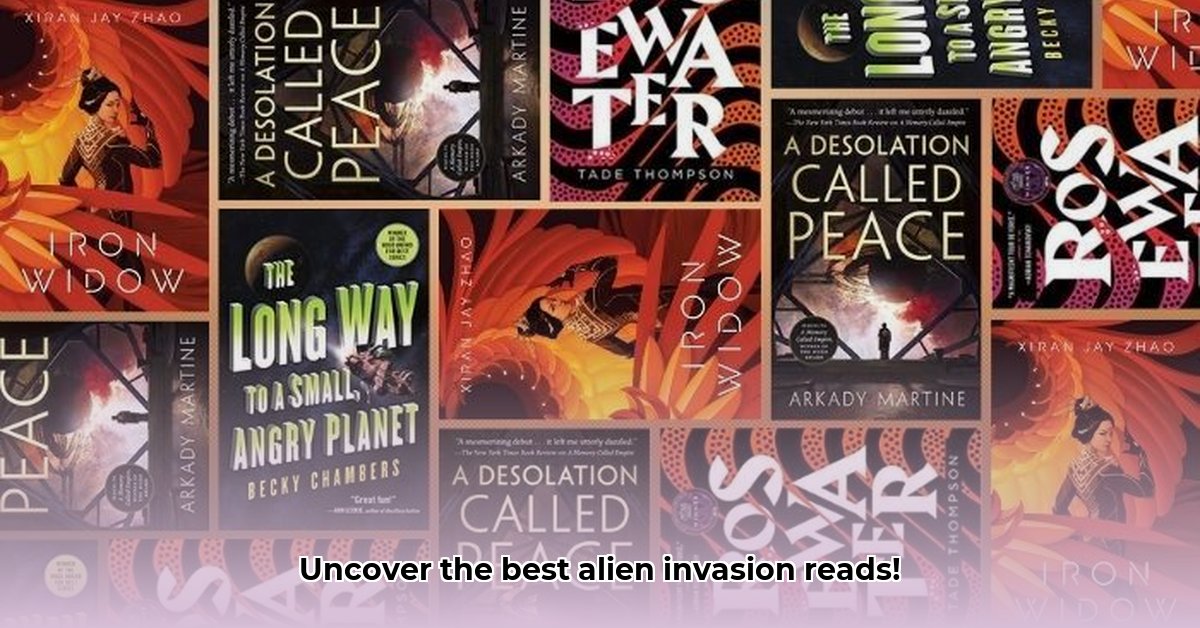
Navigating the Alien Universe: A Reader's Guide
So, you're ready to delve into the chilling world of Alien literature? Excellent! But navigating the franchise's sprawling, multi-author canon can feel like navigating a derelict spaceship through an asteroid field. This guide provides a clear, chronological reading order, acknowledging inherent timeline inconsistencies, to maximize your terrifying enjoyment. Whether you're a seasoned xenomorph hunter or a newbie to this terrifying universe, let's chart a course through the darkest corners of space. For a comprehensive list of Alien novels, check out this helpful Alien book list.
Mapping Your Course: Methodology and Limitations
Constructing a definitive Alien reading order isn't a simple task. Unlike a neatly packaged trilogy, the Alien novels feature multiple authors, resulting in occasional discrepancies in the timeline. This order prioritizes internal consistency within each novel, then arranges them chronologically based on events and logical inferences. This isn't a universally agreed upon method; different fans will undoubtedly have distinct preferences. We've consulted various fan communities and timelines, striving for a sensible chronological sequence, but some debate remains inherent to the material.
The Suggested Reading Order: A Chronological Journey Through Horror
This chronological reading order aims to create a cohesive narrative flow, grouping interconnected books. Individual preferences always supersede any prescribed order, so feel free to personalize your reading journey!
| Title | Author | Publication Year | Brief Synopsis | Notes |
|---|---|---|---|---|
| Alien: Out of the Shadows | Alan Dean Foster | 1999 | Expands directly upon the first film, delving into the Nostromo crew's terrifying experiences before and after the encounter. | Essential for a deeper understanding of the events of the first film and the crew's perspectives. |
| Aliens: Earth Hive | John Shirley | 1989 | Explores the aftermath of the Sulaco crash, depicting the horrifying spread of Xenomorphs on Earth. | Bridges the gap between the first two films, setting the stage for the escalating conflict. |
| Alien³: The Original Screenplay | William Gibson | 1992 | Presents an alternate script for Alien³, offering a unique perspective on Newt's fate and the overall narrative. | Provides an interesting "what if" scenario, highlighting the creative differences between film and novel adaptations. |
| Aliens: Nightmare Asylum | Mark Verheiden | 1997 | Continues Ripley's journey, focusing on her psychological transformation after the events of Aliens. | Explores Ripley's character arc and the lasting psychological impact of her experiences. |
| Alien: Sea of Sorrows | James A. Moore | 2019 | A prequel exploring the origins of the Xenomorphs, delving into their murky and terrifying beginnings. | Provides crucial background on the genesis of the Xenomorphs, enriching the overall narrative. |
| Aliens: Harvest | Dave Stern | 1993 | Features a unique perspective on the Xenomorph threat's expansion, taking place on a remote planet. | Offers a different angle on the Xenomorph's spread and the challenges faced by humanity. |
| Alien: The Female War | A. C. Crispin | 1993 | Focuses on Ripley's experiences and actions in the years between the films. | Offers further insight into her character and actions spanning several years. |
| Alien: Clone | Steve Perry | 1997 | Explores the complexities of Ripley's cloning and the implications for the future of humanity. | An important piece for understanding Ripley's identity and the consequences of cloning technology. |
(Note: This is a curated selection, not an exhaustive list of all Alien novels.)
Alternative Approaches: Customizing Your Reading Journey
While the chronological approach delivers the most coherent narrative, other routes exist. You might prioritize reading by author, focusing on specific characters, or simply sticking to the publication order. The "best" order is always subjective, so experiment to find what best suits your personal preferences.
Chronological vs. Publication Order: A Comparison
| Approach | Pros | Cons |
|---|---|---|
| Chronological | Offers a cohesive, immersive narrative experience. | May feel disjointed stylistically due to multiple authors. |
| Publication Order | Simple to follow, readily accessible based on release dates. | Risks a fragmented narrative due to timeline inconsistencies between novels. |
Focusing Your Exploration: Sub-Series and Themes
The Alien universe's rich tapestry allows for focused explorations. You can choose to concentrate on specific themes like the Weyland-Yutani Corporation's influence, the Colonial Marines' struggles, or the long-term effects of the Xenomorph threat. This allows for deeper immersion within specific narrative arcs.
Addressing Timeline Inconsistencies: A Note on Interpretation
The Alien universe isn't without its inconsistencies. Some novels slightly contradict each other, leading to minor timeline discrepancies. These are often unavoidable given the multiple authors and decades of storytelling. The proposed chronological order aims to minimize these conflicts, but some ambiguity remains inherent to the franchise's multifaceted narrative. Embrace the inherent ambiguity—it's part of the Alien universe's unique charm.
Conclusion: Embark on Your Alien Adventure
This guide offers a suggested chronological reading order for the Alien novels, acknowledging and addressing inherent inconsistencies. Remember, the most satisfying reading order is the one that you enjoy most. Explore, experiment, and forge your own path through the dark, terrifying world of Alien.